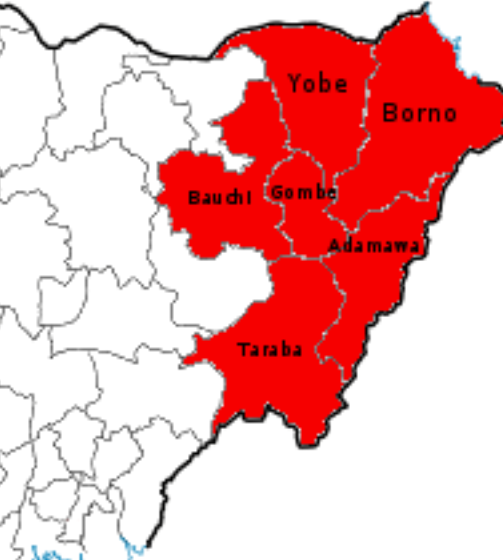
African Politicians Are Still in Kindergarten Compared to the Level of Corruption Here in the US” – Singer Dencia Sparks Firestorm with Explosive Take on American Politics
In a world where social media statements travel faster than facts and celebrity opinions often hit harder than government press releases, Cameroonian-born singer and entrepreneur Dencia has stirred up a hornet’s nest with a blunt and fiery assertion that has set the internet ablaze. In a recent post that quickly
In a world where social media statements travel faster than facts and celebrity opinions often hit harder than government press releases, Cameroonian-born singer and entrepreneur Dencia has stirred up a hornet’s nest with a blunt and fiery assertion that has set the internet ablaze. In a recent post that quickly gained viral momentum, the controversial and outspoken entertainer declared: “African politicians are still in kindergarten compared to the level of corruption here in the US.”
The comment, as brazen as it is thought-provoking, has reignited global conversations around political corruption, media manipulation, and the deeply entrenched rot hidden behind the polished image of Western democracies. Dencia didn’t stop there. She warned her followers with a haunting remark: “Believe anything you see about the United States at the risk of your mental health. No one lies more than the news outlets and U.S. politicians.”
It was a post dripping with disdain, disillusionment, and raw honesty. And for many, it hit a nerve.
Known for her luxury skincare empire and bold fashion choices, Dencia has never been one to mince words. But this particular outburst felt different. This wasn\'t just a celebrity venting on Instagram—it read like a wake-up call to the masses, especially those in the Global South who have long been conditioned to view the West as the moral, political, and economic benchmark. The post shattered that illusion in a matter of seconds.
Growing up in Cameroon, like many Africans, Dencia admitted to believing that her continent held the monopoly on bad governance. The tales of embezzlement, rigged elections, power-hungry dictators, and public officials who built mansions while citizens drank dirty water were all too familiar. But adulthood—and particularly her experience as a Black immigrant woman navigating life in the United States—opened her eyes to what she now describes as “next-level corruption.”
And she’s not alone.
In recent years, mounting revelations about systemic failures within the U.S. political system have prompted similar realizations among immigrants and citizens alike. From insider trading scandals in Congress to the revolving doors between lobbyists and lawmakers, the lines between governance and greed appear blurrier than ever. The very institutions tasked with protecting democracy are increasingly being seen as playgrounds for the elite—where power and profit dance hand-in-hand under the guise of freedom and justice.
Dencia’s remarks cut deeper when you consider the contrast between perception and reality. For decades, Western media has projected Africa as a cesspool of corruption, often with images of crumbling infrastructure, chaotic elections, and greedy strongmen clutching to power. Meanwhile, the corruption in the West—polished, systematic, and cloaked in legal frameworks—remains hidden in plain sight. What’s scandalous in Africa is often routine in America.
Take, for example, the infamous lobbying system in the U.S.—a legalized avenue where corporations and interest groups pour billions into influencing legislation. Politicians routinely leave office only to return as consultants for companies they once regulated. And while American lawmakers are rarely seen stuffing cash into briefcases, entire fortunes are built quietly behind closed doors on Capitol Hill, with the public none the wiser.
Then there’s the media—the so-called fourth estate. Dencia’s claim that “no one lies more than the news outlets” might sound extreme to some, but it resonates deeply with those who feel gaslit by the polished anchors and curated headlines that often conceal more than they reveal. Misinformation, corporate influence, and political bias have all eroded public trust in major U.S. news networks, making it increasingly difficult to separate truth from propaganda.
Her warning—“Believe anything you see about the United States at the risk of your mental health”—reflects a sentiment growing louder across the diaspora. That beneath the bright lights, clean streets, and grand speeches lies a system that has perfected the art of deception. Dencia’s candor may be dismissed by some as cynical or anti-American, but for many, it’s simply a painful truth finally said aloud.
The firestorm her comments ignited also exposed a larger tension—one between the image of America as a global beacon of hope and the lived experience of those who know better. For immigrants like Dencia, who arrived full of dreams only to be met with systemic racism, political disillusionment, and a justice system that often feels anything but just, the betrayal runs deep.
Online, reactions to her post were predictably polarized. Some praised her bravery and honesty, applauding her for voicing what many are too afraid to say. “She’s 100% right,” one user wrote. “We’ve been brainwashed to believe corruption only wears African skin.” Others accused her of exaggeration and painting the U.S. with a broad brush, dismissing her views as conspiratorial and ungrateful.
But whether you agree with her or not, Dencia has done something powerful—she’s sparked a necessary conversation. One that forces us to question not just who we trust, but why. One that pushes Africans to reevaluate the internalized shame about their own governance, and to recognize that corruption isn’t a uniquely African disease—it’s a global epidemic, merely disguised in different uniforms.
Her statement also challenges young Africans to stop idolizing Western models blindly. If anything, it calls for a more nuanced approach—one that demands accountability from their own leaders while also recognizing that the West is no utopia. It encourages vigilance over veneration, critical thinking over blind consumption of information.
In a time when image matters more than substance and perception is everything, Dencia’s raw and unfiltered perspective is a sobering reminder that all that glitters is not gold—even when it’s wrapped in stars and stripes. And perhaps, just perhaps, it’s time the world stopped looking at African nations as the footnotes of corruption and started acknowledging the complex, ugly truth of how power really works on the global stage.
Dencia didn’t break the internet. She broke the silence. And whether you think she’s wrong or she’s right, she made one thing very clear: the conversation has only just begun.
Share this post
Related Posts

“He Was Jealous at First, But They’re Bonding Now” — Priscilla Ojo Opens Up on Mohbad’s Son, Liam’s Sweet Reaction to Her Baby Rakeem
In a heartwarming revelation that has captured the attention of fans across social media, Priscilla...

North-East Governors Unite to Launch N30bn Regional Air Shuttle, Promise New Era of Connectivity
In a move described as a bold step toward regional integration and economic revival, governors...

\"No Room for Jealousy: Eniola Badmus Preaches Unity Amidst Clash With Laide Bakare
In the ever-volatile world of Nollywood, where emotions often flare and public drama is never...